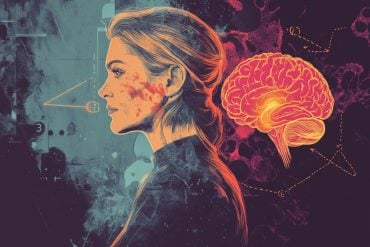Summary: Ciara Burns’ solo row across the Atlantic not only tested her physical and mental limits but also turned into a scientific study exploring the interplay between the body and psyche during extreme activities.
Monitoring heart rate variability provided insights into fitness, sleep quality, and regeneration during sleep, revealing a tangible link between psychological states and physiological parameters.
The data unveiled challenges in sleep and regenerative patterns, especially amidst the three crucial phases: adapting at the outset, midpoint realization of the journey’s enormity, and the proximity-yet-distance of the endpoint.
This unique venture hints at potential modifications in sleep rhythm transitions and introduces the idea of mid-journey rewards to uplift spirits in future extreme undertakings.
Key Facts:
- Heart Rate Variability: The variability in heart rate was studied to infer overall fitness, sleep quality, and regenerative capacity during sleep, revealing a crucial link between psychological stressors and physiological reactions.
- Unconventional Sleep Rhythm: The adopted three-hour alternating sleep and rowing rhythm demonstrated a tangible decline in sleep quality during psychologically challenging phases and illustrated a gradual decrement in regenerative capability across the trip.
- Protective Bodily Response: Amidst the grueling journey, the body seemingly triggered a protective mode, evidenced by a slowing average heartbeat and enhanced activity of the parasympathetic nervous system, to guard the heart from overload.
Source: Vienna University of Technology
Ciara Burns spent 42 days rowing across the Atlantic in 2021 as part of a team of twelve. Clearly, whoever ventures on such an adventure has to go to the extreme limits both physically and mentally. Therefore, a situation like this is very interesting not only from a sporting point of view, but also for science.
Throughout the journey, Ciara Burns, a student of TU Wien (Vienna), collected data, registered her heart rate with special sensors and kept records of her subjective well-being.

Now the analysis of the data has been completed and the results have been published. Some lessons can be learned from this for similar extreme undertakings – especially about a close interplay between body and psyche.
How variable is the heartbeat?
“You can derive a lot of interesting findings from the heart rate recordings,” says Prof. Eugenijus Kaniusas, who heads the “Biomedical Sensing and Therapy” research group at TU Wien and provided scientific support for the project.
“The variability of the heart rate is particularly important for us. From it, you can infer the general state of fitness, sleep quality and how well someone can regenerate during sleep.”
Normally, the heart rate is more regular during waking hours, and it varies more during periods of sleep. A large difference in heart rate variability between sleep phases and awake phases indicates that the body regenerates well during sleep. If the variability in sleep and wake phases is very similar, it is a sign that the body’s own regulatory and regenerative mechanisms are no longer functioning optimally.
Three hours of rowing, three hours of rest
The rowing team established a very unusual sleep rhythm for the duration of the Atlantic crossing: Around the clock, half the team was busy rowing, while the other half slept. They took turns every three hours. This strategy had already proven successful in similar projects before – but how does the body cope with this unnatural rhythm?
“There were three phases where it was particularly challenging,” says Ciara Burns.
“At the beginning, of course, when you have to get used to the effort and the new rhythm. Then about halfway through the trip, when I realized how big the Atlantic really is, and how long the second half was going to be. And then at the very end it was difficult again, when the destination was already close, but not yet really within reach.”
These three difficult phases can also be seen in the data: the sleep quality declined in each case. This clearly shows that the psychological condition is closely related to measurable, physiological parameters.
Independently of this, however, another development can also be seen across the entire trip: the ability to regenerate during sleep phases became successively worse, and the body no longer manages to switch between wake and sleep phases.
“At the same time, the body seems to enter a kind of protective mode to protect the heart from overload,” says Eugenijus Kaniusas.
“The average heartbeat slows down, and the activity of the parasympathetic nervous system, which plays an important role in controlling the internal organs, increases.”
Tips for the future
Studies of this kind are very rare – not least because most people capable of such extreme athletic feats don’t want to go to the additional obligation of collecting scientific data in view of adverse conditions on the high seas.
“Ciara Burns has done highly precise work here with unprecedented dedication,” says Eugenijus Kaniusas. “The project was also reviewed by the ethics committee of TU Wien and supported in an exemplary way.”
Some things might now be done differently after evaluating the data: for example, it might be better not to abruptly switch from normal day-night rhythm to the hard three-hour rhythm, but to plan for a transition phase – this might mitigate the initial low at the beginning of the journey.
For the middle of the journey, Eugenijus Kaniusas would recommend, from today’s perspective, a special reward to keep spirits high: “Maybe some special, enjoyable activity that lets you celebrate that you’re halfway through the effort and comfort yourself over the realization that there is still a long way to go.”
About this Neuroscience research news
Author: Florian Aigner
Source: Vienna University of Technology
Contact: Florian Aigner – Vienna University of Technology
Image: The image is credited to Neuroscience News
Original Research: Open access.
“Mental and physiological wellbeing while rowing across the North Atlantic: a single-case study of subjective versus objective data” by Eugenijus Kaniusas et al. Frontiers in Psychology
Abstract
Mental and physiological wellbeing while rowing across the North Atlantic: a single-case study of subjective versus objective data
Introduction: Unassisted rowing across the Atlantic Ocean is an extreme undertaking challenging the human body in every possible way. The reported rowing journey lasted for 42 days in a small vessel with 12 rowers, each rowing for 12 h a day, broken into 3 h shifts. This schedule disrupts the natural circadian cycle and autonomic balance, affecting subjective and objective wellbeing and sleep quality, that lack continuous empirical quantification.
Methods: With a self-reported questionnaire and objective heart rate variability measurements every second day in a single female rower, we monitor evolutions of the subjective sleep quality and mental wellbeing as well as autonomic body control over the journey duration. We evaluate the hypothesis that extreme rowing impairs subjective and objective data in a similar way over time and that 3 h shifts diminish the circadian rhythm of the autonomic body control.
Results: The sleep quality was mainly influenced by wake ups during sleep, while mental wellbeing was predominantly influenced by physical exhaustion. The perceived sleep quality and wellbeing dropped 2–3 days after the start with the rower not yet accommodated, in the middle of the journey with major wake ups, and again 5–6 days prior to the end with major exhaustion of the participant. Evolutions of the subjective perceptions diverge from that of the heart rate variability. The body’s autonomic recovery during short sleep periods progressively decreases over the journey duration while the vagal activity rises and the sympathovagal balance shifts towards vagal tone. The shifts of 3 h weaken the circadian rhythm of the heart rate variability.
Discussion: Our results demonstrate how human body meets extreme mental and physical exhaustion on the high seas. The gained physiological and psychological insights also offer a basis for effective preparation of undertakings involving extreme physical exhaustion and sleep deprivation.






